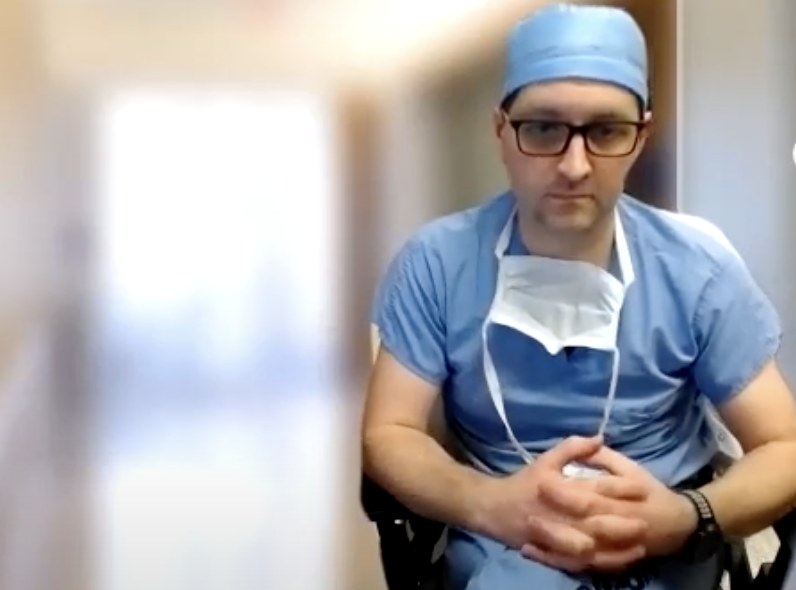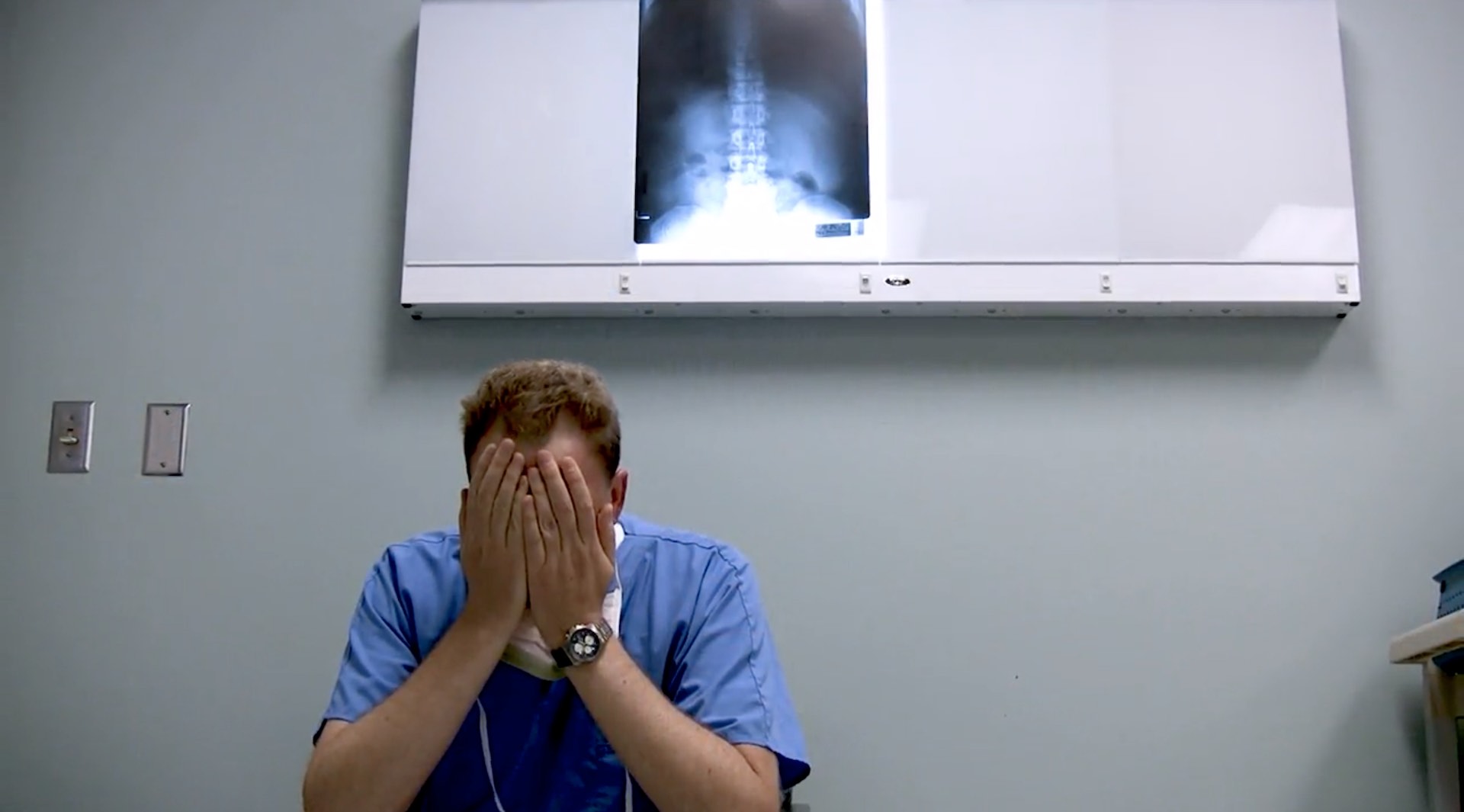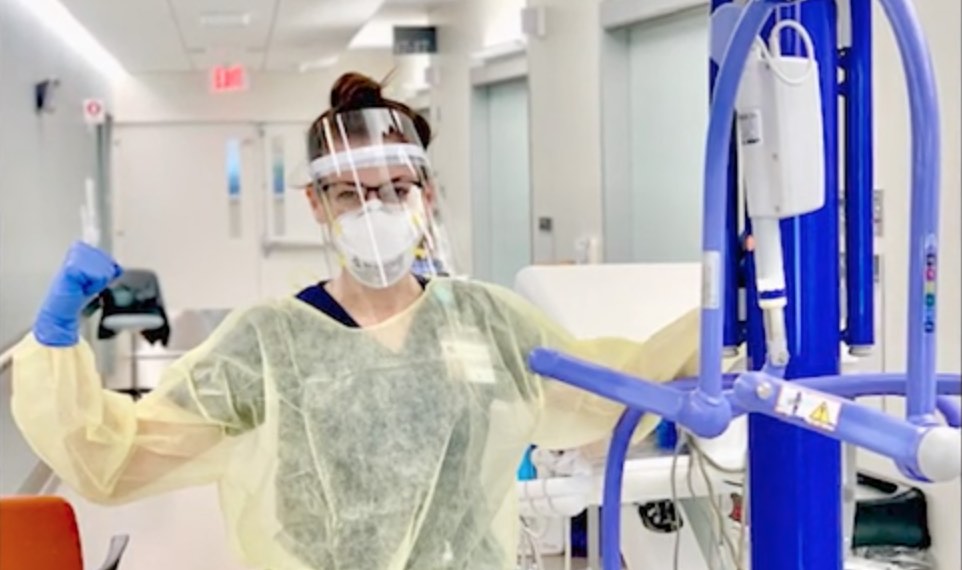Daily probing of contaminated surgical wounds reduces infection risk
Reuters Health • The Doctor's Channel Daily Newscast
April 22, 2011 • Critical Care, Nurses/NP/PA, Reuters Health • The Doctor's Channel Newscast, Surgery
NEW YORK (Reuters Health) – In surgical patients at high risk of contaminated incisions, a simple protocol of daily wound probing reduces the rate of surgical site infections, according to a report in the April issue of the Archives of Surgery.
Dr. Shirin Towfigh, at Cedars-Sinai Medical Center in Los Angeles, California, and colleagues investigated the strategy in a randomized trial involving 76 adult patients undergoing open appendectomy for perforated appendix.
After the procedure, the surgical wound was loosely closed with staples placed every 2 centimeters. Half the patients were assigned to a control group in which the closed appendectomy incision was swabbed daily with povidone iodine only. The remaining patients in the intervention arm were treated in a similar manner, but with the addition of a daily wound-probing procedure.
As described in the report, “a dry, sterile cotton-tipped applicator was used to penetrate the skin and soft tissue between the skin staples, reaching down to the external oblique fascia. Any fluid that extruded as a result of the probing was blotted dry. The wound was then covered with a dry dressing.” The daily process was repeated until the wound was dry and could no longer be penetrated.
The procedure was not painful, according to the report, and patients in the wound-probe groups had significantly shorter lengths of stay than the control group: 5 vs 7 days, respectively.
On follow-up, the team found that the rate of surgical site infection was 3% in the intervention group compared with 19% in the control group. This was independent of patient age, BMI, girth, wound length and presence of diabetes.
“The method by which wound probing reduces surgical site infections is not clearly understood at this time,” the authors write. “We surmise that this technique allows for drainage of contaminated fluid within the soft tissue, thus reducing the bacterial count while maintaining a moist wound for improved healing.”
Whatever the mechanism, Dr. Towfigh and colleagues recommend that “wound probing be practiced in the first-line management of incisions after open surgery, such as bowel resection, in the face of contamination.”
The reduction in surgical site infections and decreased hospital stay, they say, “may result in improved long-term outcomes such as fascial dehiscence and incisional hernias, reduced labor for wound care by nursing staff and physicians, improved cosmetic outcome with primary closure, and possibly reduced overall cost.”
Arch Surg 2011;146:448-452.
Dr. Shirin Towfigh, at Cedars-Sinai Medical Center in Los Angeles, California, and colleagues investigated the strategy in a randomized trial involving 76 adult patients undergoing open appendectomy for perforated appendix.
After the procedure, the surgical wound was loosely closed with staples placed every 2 centimeters. Half the patients were assigned to a control group in which the closed appendectomy incision was swabbed daily with povidone iodine only. The remaining patients in the intervention arm were treated in a similar manner, but with the addition of a daily wound-probing procedure.
As described in the report, “a dry, sterile cotton-tipped applicator was used to penetrate the skin and soft tissue between the skin staples, reaching down to the external oblique fascia. Any fluid that extruded as a result of the probing was blotted dry. The wound was then covered with a dry dressing.” The daily process was repeated until the wound was dry and could no longer be penetrated.
The procedure was not painful, according to the report, and patients in the wound-probe groups had significantly shorter lengths of stay than the control group: 5 vs 7 days, respectively.
On follow-up, the team found that the rate of surgical site infection was 3% in the intervention group compared with 19% in the control group. This was independent of patient age, BMI, girth, wound length and presence of diabetes.
“The method by which wound probing reduces surgical site infections is not clearly understood at this time,” the authors write. “We surmise that this technique allows for drainage of contaminated fluid within the soft tissue, thus reducing the bacterial count while maintaining a moist wound for improved healing.”
Whatever the mechanism, Dr. Towfigh and colleagues recommend that “wound probing be practiced in the first-line management of incisions after open surgery, such as bowel resection, in the face of contamination.”
The reduction in surgical site infections and decreased hospital stay, they say, “may result in improved long-term outcomes such as fascial dehiscence and incisional hernias, reduced labor for wound care by nursing staff and physicians, improved cosmetic outcome with primary closure, and possibly reduced overall cost.”
Arch Surg 2011;146:448-452.









